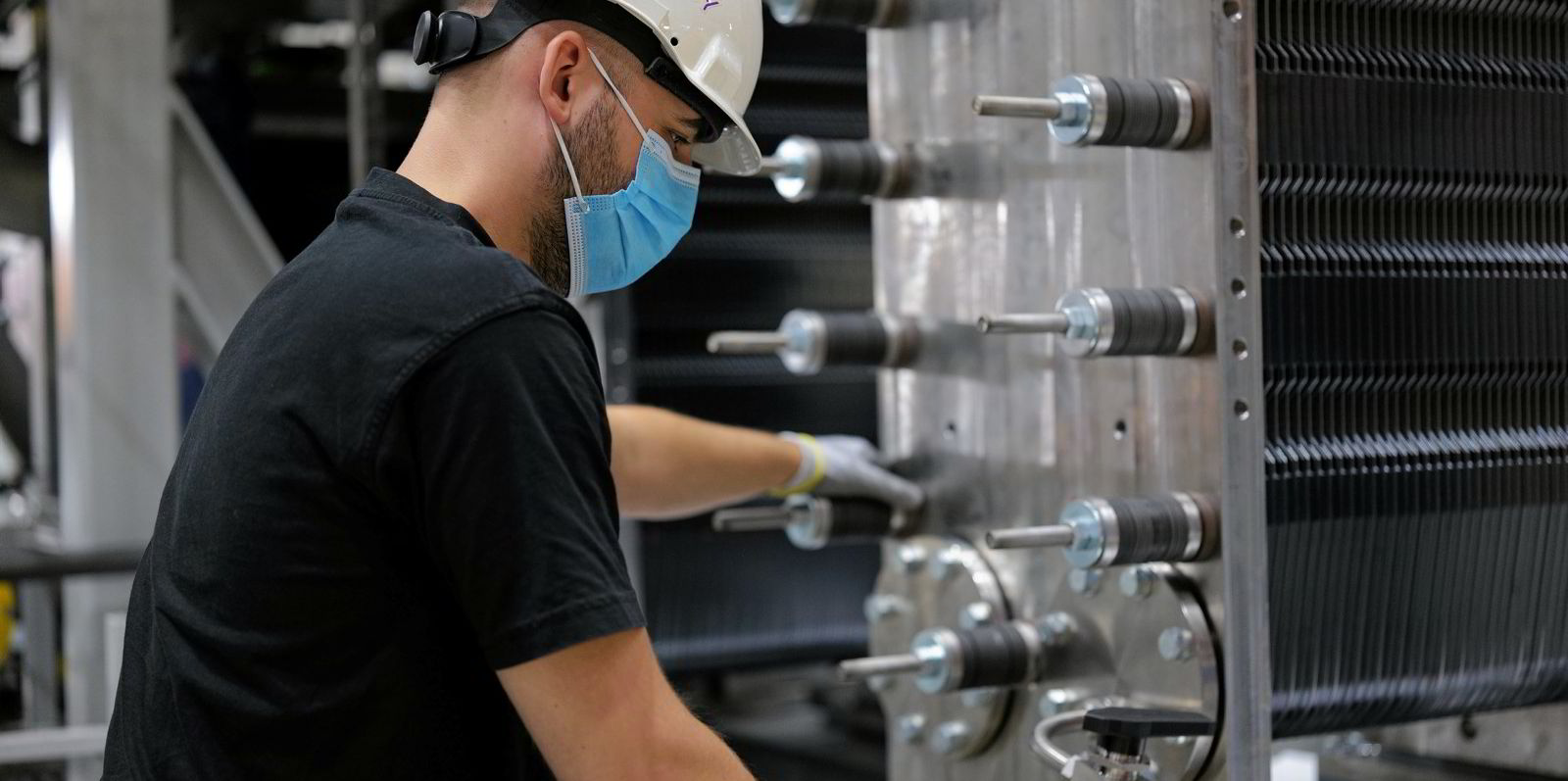
The companies through the strategic partnership intend to foster a European ecosystem for electrolysis and hydrogen technology. Production is expected to begin in the second half of next year at a factory in Berlin, and is slated to reach an output of 3GW by 2025.
Siemens Energy will hold 74.9% of the JV, with Air Liquide taking the remaining 25.1%.
“We want to be a driving force in hydrogen technology,” Siemens Energy chief executive Christian Bruch said.
“To make green hydrogen competitive, we need serially produced, low-cost, scalable electrolysers. We also need strong partnerships.
“Together with Air Liquide as a pioneer in hydrogen for over 50 years, we look forward to implementing innovative solutions and collaborating to shape this new hydrogen market.”
The Berlin factory will produce electrolysis modules (‘stacks’) based on proton exchange membrane (PEM) electrolysis technology, which the companies said is ideal to harvest volatile renewable power. The two companies will also carry out research at the facilities to co-develop the next generation of electrolyser technologies.
The partnership is slated to benefit from an H2 project portfolio combining Air Liquide and Siemens Gamesa’s pipelines.
One of the first projects is the Air Liquide Normand’Hy electrolyser project, with a capacity of 200MW expected in the first phase, located in northern France. The assembly of the electrolyser systems for this project is planned to be made in France.
“The creation of this Franco-German joint venture is a major step towards the emergence of a leading European renewable and low carbon hydrogen ecosystem,” Air Liquide CEO François Jackow said.
“By scaling up the production of large scale electrolysers, Air Liquide and Siemens Energy will be able to provide their customers with access to large amounts of competitive renewable hydrogen and to decarbonise their activities.”
The partners have and will apply for “large projects” funding under the EU’s Innovation Fund, Green Deal, and Important Project of Common European Interest (IPCEI)-scheme for hydrogen, funded by EU governments.